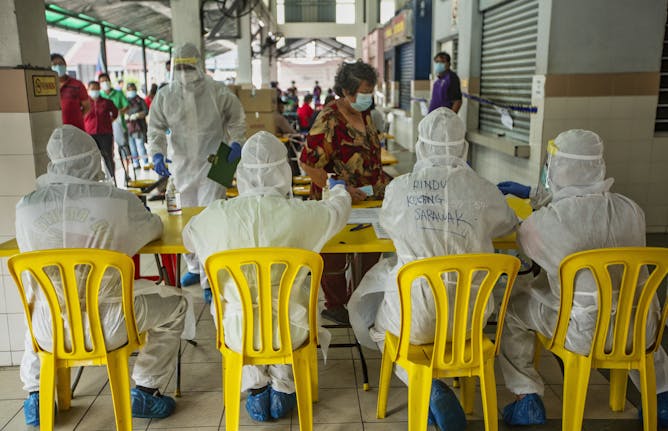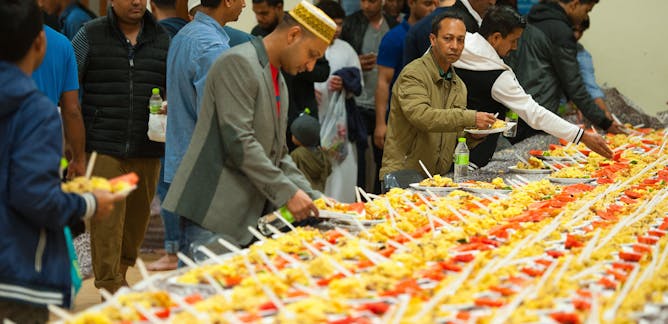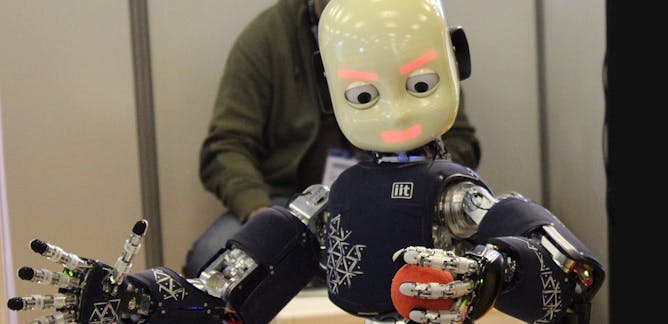|
The world before immunisation was a very different place. In Africa, for example, yellow fever epidemics occurred every three to 10 years before a vaccine was developed and routinely delivered. COVID-19 is once again a stark reminder of what a world without vaccines would look like. While energy is being focused on a COVID-19 vaccine, we must remember to ensure that our existing armoury of highly effective vaccines continues to be made available for all who need them. Katherine E. Gallagher, Shirine Voller, Anthony Scott, John Ojal, Wangeci Kagucia and Ifedayo Adetifa explain why.
In the absence of a miracle cure, the government has to think carefully about how to manage the coronavirus going forward. It’s a huge challenge. For example, Jimmy Whitworth sets out why approaches like testing and contact tracing are far from a simple solution.
|

Vaccines are some of the most equitable and cost-effective health interventions available.
ranplett/GettyImages
Katherine E. Gallagher, London School of Hygiene & Tropical Medicine; Anthony Scott, London School of Hygiene & Tropical Medicine; Ifedayo Adetifa, KEMRI Wellcome Trust Research Programme; John Ojal, London School of Hygiene & Tropical Medicine; Shirine Voller, KEMRI Wellcome Trust Research Programme; Wangeci Kagucia, KEMRI Wellcome Trust Research Programme
Coronavirus is a stark reminder of what a world without vaccines would look like.
|

Ahmad Yusni/EPA
Jimmy Whitworth, London School of Hygiene & Tropical Medicine
Are criticisms that governments should have done more fair?
|
COVID-19
|

Hassan Vally, La Trobe University
Countries aiming to flatten the coronavirus curve have one crucial aim: reduce the "effective reproduction number" of the virus to below 1. This means the spread is slowing, rather than accelerating.
| |

Amanullah De Sondy, University College Cork
Islam is not a monolith and not all Muslims are experiencing lockdown in the same way.
|
|
|
Arts + Culture
|

Benjamin Kirby, University of Leeds; Josiah Taru, Great Zimbabwe University; Tinashe Chimbidzikai, Max Planck Institute for the Study of Religious and Ethnic Diversity
Framing the fight against coronavirus as a spiritual war may stem from a shared sense of discomfort about an adversary without discernible conscience; an impersonal demon.
| |

Nedine Moonsamy, University of Pretoria
Even in a world where 99% of the male population is dead, patriarchy is still a very comfortable pair of shoes and very easy to slip into.
|
|
|
En español
|

Javier Sánchez Perona, Instituto de la Grasa (IG - CSIC)
Estudios preliminares señalan una relación entre tener niveles bajos de colesterol 'malo' y mayor susceptibilidad al coronavirus.
| |

Juan Luis Jiménez González, Universidad De Las Palmas de Gran Canaria; Gabriel Doménech Pascual, Universitat de València
Entre las medidas tomadas por el Gobierno en la gestión de la crisis sanitaria, está el control de precios de mascarillas quirúrgicas desechables, entre otros productos. ¿Es adecuada esta medida?
|
|
|
En Français
|

Ignacio López-Goñi, Universidad de Navarra
En trois mois, de nombreuses propositions de thérapies et de vaccins contre le nouveau coronavirus ont émergé. Jamais la science n’avait autant progressé en si peu de temps pour endiguer une épidémie.
| |

Marceau Felden, Université Paris-Saclay
D’Alan Turing à aujourd’hui, les questions-pièges de l’intelligence artificielle.
|
|
|